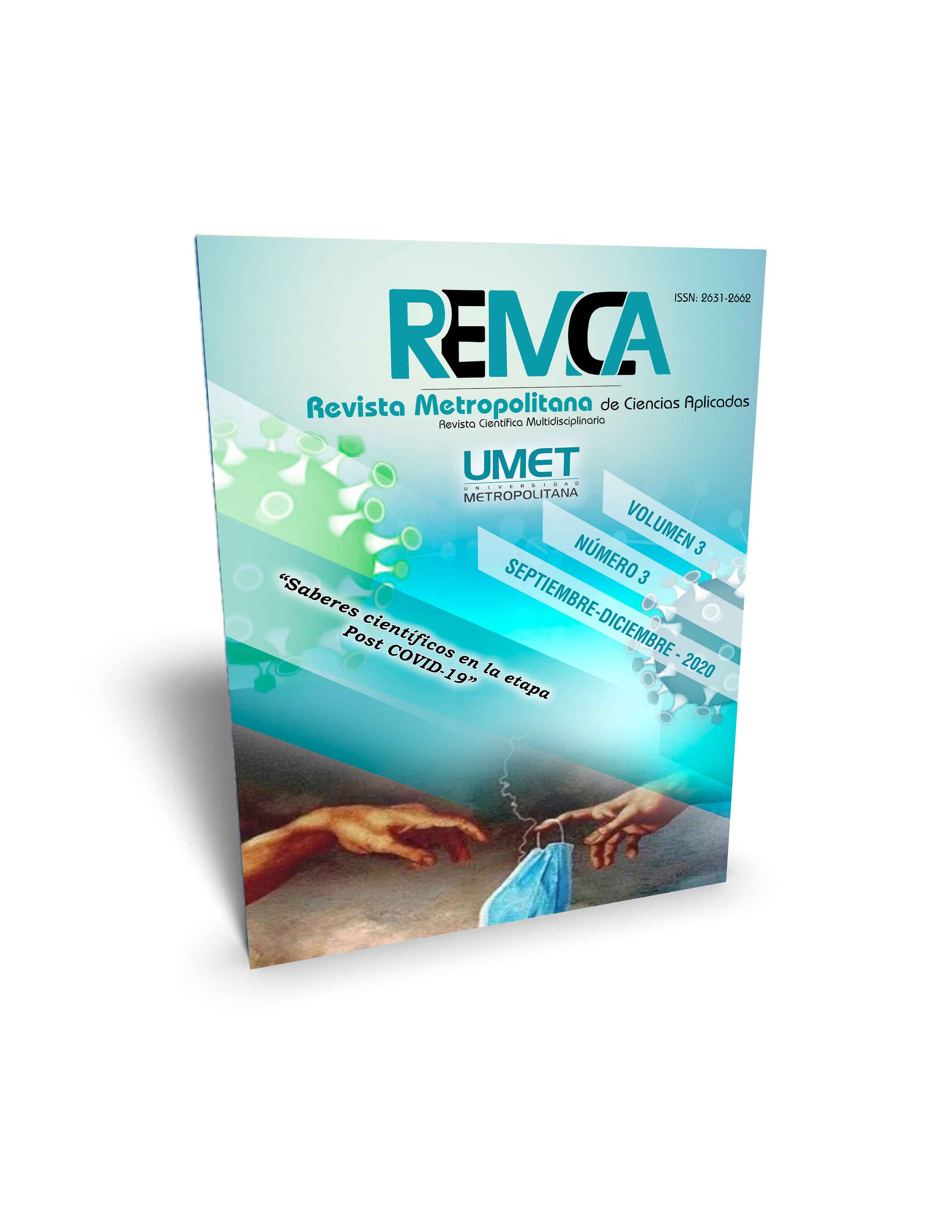Constructivism and its prevalence in the teaching - learning process in basic education in Machala. Case study
DOI:
https://doi.org/10.62452/ddwa3n65Keywords:
Pedagogical model, Teaching learning process, basic educationAbstract
This research dealt with the educational paradigm that prevails in the teaching-learning process of the “Heroes of Paquisha” School. The objective was to identify the prevalence of some educational theory in which this process is centered. The type of research is qualitative-quantitative in nature, for which it relied on theoretical methods and a questionnaire for collecting field information. Among the results obtained, it was found that the predominant model is the traditional one, although from the teaching perspective it was shown to be the constructivist, a situation opposed to that corroborated by observation in practice. Which led to the conclusion that teachers still have shortcomings in the application of content under a declared pedagogical scheme and that it is focused on the student, which ultimately damages the actions in the classroom to the speakers, in addition to discouraging them and as a consequence their interest in study decreases, which results in low academic performance.
Downloads
References
Avendaño, W. (2013). Un modelo pedagógico para la educación ambiental desde la perspectiva de la modificabilidad estructural cognitiva. Revista Luna Azul, (36), 110-133.
Becerra, G. (2016). Los usos del constructivismo en las publicaciones científicas de Latinoamérica. Revista MAD, (35), 3-59.
Berni, L., & Olivero, F. (2019). La investigación en la praxis del docente: Epistemología didáctica constructivista. Revista Espacios, 40(12).
Burgo, O., León, J., Cáceres, M., Pérez, C., & Espinoza, E. (2019). Algunas reflexiones sobre investigación e intervención educativa. Revista Cubana de Medicina Militar, 48(2)
Colombia. Universidad San Buenaventura. (2015). Las corrientes constructivistas y los modelos autoestructurantes. Universidad San Buenaventura.
Delval, J. (2001). Hoy todos son constructivistas. Educere, 5(15), 353-359.
Espinoza, E., & Serrano, O. (2019). Estilos de aprendizaje. Aplicación del Cuestionario Honey – Alonso en estudiantes de la Universidad Técnica de Machala, Ecuador. Revista Espacios, 40(23).
Espinoza, E., & Campuzano, J. (2019). La formación por competencias de los docentes de educación básica y media. Conrado, 15(67), 250-258.
Ortiz Granja, D. (2015). El constructivismo como teoría y método de enseñanza. Sophia, Colección de Filosofía de la Educación, (19), 93-110.
Guamán, V., Espinoza, E., Herrera, L., & Herrera, E. (2019). Reflexiones acerca de la investigación social en la Carrera en Educación del Ecuador. Revista Universidad y Sociedad, 11(5), 437-446.
Henao Álvarez, O. H., & Zapata, D. (2002). La enseñanza virtual en la educación superior. Instituto Colombiano para el Fomento de la Educación Superior.
Honebein, P. (1996). Seven goals for the design of constructivist learning environments. Educational Technology Publications. Englewood Cliffs.
Ecuador. Ministerio de Educación. (2016). Currículo de los niveles de educaciòn obligatoria. https://educacion.gob.ec/wp-content/uploads/downloads/2016/08/Curriculov2.pdf
Rodríguez, N., Degadillo, N., & Torres, S. (2018). Los ambientes de aprendizaje como alternativa para generar innovacion en la universidad. International Journal of Information Systems and Software Engineering for Big Companies (IJISEBC), 5(2), 41-52.
Ocaña, A. O., Buitrago, J. O., & Fontalvo, I. M. (2015). Los modelos pedagógicos desde una dimensión psicológica-espiritual. Revista Científica General José María Córdova, 13 (15), 183-194.
Pesantes, A. (2017). El modelo educativo ecuatoriano y la contribución a la revolución de la educación entre la realidad y la ficción. https://educar.ec/jornada/postdata-modelo-educativo_signed.pdf
Rivera Michelena, N. (2016). Una óptica constructivista en la busqueda de soluciones pertinentes a los problemas de la enseñanza-aprendizaje. Educ. Med. Super., 30(3), 609-614.
Nieto Ruiz, L. F. (2007). Instrumento para identificar modelos pedagógicos en el Instituto Técnico Rafael Reyes de la ciudad de Duitama. Cuadernos de Lingüística Hispánica, (10), 189-205.
Tan, C. (2016). Constructivism and pedagogical reform in China: Issues and challenges. Globalisation, Societies and Education, 15(2), 238-247.
Downloads
Published
Issue
Section
License
Copyright (c) 2020 Byron Patricio Ordoñez Ocampos, Maurely Edith Ochoa Romero, Eudaldo Enrique Espinoza Freire (Autor/a)

This work is licensed under a Creative Commons Attribution-NonCommercial-ShareAlike 4.0 International License.
Authors who publish in Revista Metropolitana de Ciencias Aplicadas (REMCA), agree to the following terms:
1. Copyright
Authors retain unrestricted copyright to their work. Authors grant the journal the right of first publication. To this end, they assign the journal non-exclusive exploitation rights (reproduction, distribution, public communication, and transformation). Authors may enter into additional agreements for the non-exclusive distribution of the version of the work published in the journal, provided that acknowledgment of its initial publication in this journal is given.
© The authors.
2. License
The articles are published in the journal under the Creative Commons Attribution-NonCommercial-ShareAlike 4.0 International License (CC BY-NC-SA 4.0). The terms can be found at: https://creativecommons.org/licenses/by-nc-sa/4.0/deed.en
This license allows:
- Sharing: Copying and redistributing the material in any medium or format.
- Adapting: Remixing, transforming, and building upon the material.
Under the following terms:
- Attribution: You must give appropriate credit, provide a link to the license, and indicate if any changes were made. You may do this in any reasonable manner, but not in any way that suggests the licensor endorses or sponsors your use.
- NonCommercial: You may not use the material for commercial purposes.
- ShareAlike: If you remix, transform, or build upon the material, you must distribute your creation under the same license as the original work.
There are no additional restrictions. You may not apply legal terms or technological measures that legally restrict others from doing anything the license permits.




